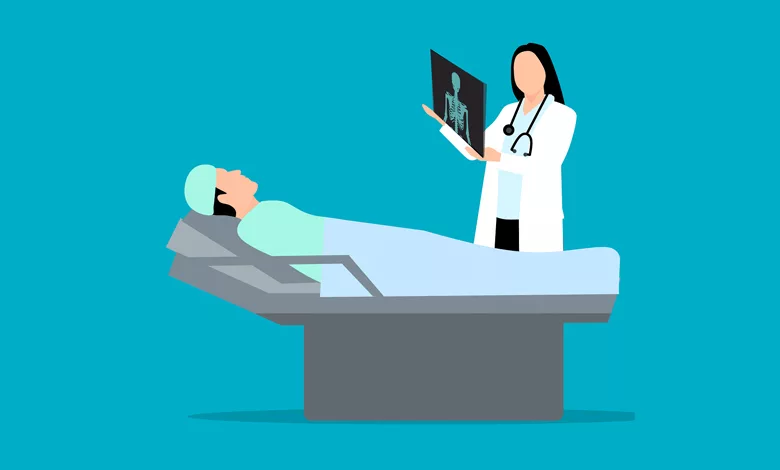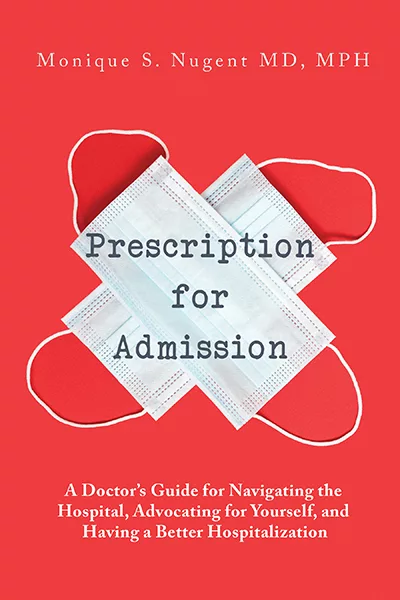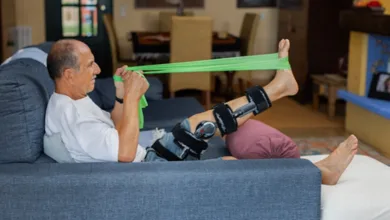
For those of us of a certain age, the thought of an upcoming doctor’s appointment probably evokes a bit of worry.
And that anxiety grows exponentially if we need to go to the hospital.
Not only is there concern about our health, but also about being in an unfamiliar place, along with the discomfort of being removed from our routine.
 But there are things we can do to make the experience a little easier when the dreaded day arrives, said Dr. Monique S. Nugent. She’s the author of “Prescription for Admission,” a book that aims to prepare people for the experience.
But there are things we can do to make the experience a little easier when the dreaded day arrives, said Dr. Monique S. Nugent. She’s the author of “Prescription for Admission,” a book that aims to prepare people for the experience.
“This is a real passion project because I love the hospital,” said Nugent, an associate director for the Division of Hospital Medicine at South Shore Hospital in Weymouth, Massachusetts.
“I know that’s probably not what people say, but I do. It’s my clinical comfort zone. And it just saddens me when I see patients coming to a place that I know can do well for them struggle with the same exact problems over and over again.”
The book — which includes QR codes with links to additional resources — was intentionally published in paperback, Nugent said, because it should be used frequently as a resource. “I want it rolled up in bags. I want people taking notes and dog-earing the pages. I want it to be an active part of their experience,” she said.
Here are a few of her suggestions for making the hospital experience a little easier to weather.
No. 1: Try to visit the hospital that sees you most regularly.
Nugent said there’s an unfortunate truth about America’s healthcare system that most people don’t know.
“When writing this book, I asked my friends, ‘What do you want patients to know?’ And almost all the emergency medicine doctors said, ‘Please tell people there’s no such thing as ‘The Record.’”
That is to say, your medical record is not in some system immediately accessible to any other hospital. That’s why it’s important to go where they have the most information about you.
“The more you’re in a hospital, the more familiar everything in the system becomes with you,” she said.
No. 2: Know as much as possible about your ailment … and medications.
“If you can serve as a source of clear and consistent information, you’re setting yourself up for helping your team create the most safe and efficient plan for you,” she said. Even just knowing where you pick up your medication can be a big help.
No. 3: Have a pen and paper handy.
This simple thing is beneficial if you have any questions for the doctor, such as if you’re going in for some tests. Just keep it next to your bed, write down any questions that come to mind, and you’ll be ready when they stop by your room.
“If it’s an invasive procedure … they’re going to ask you to sign an informed consent, and that’s your chance to ask all the questions that you have,” Nugent said.
No. 4: Mobilize your community.
Nugent said that being hospitalized can be a lonely experience, so reach out to your loved ones who can serve as a “care partner” and ensure you don’t feel isolated. They can also help keep the rest of the family updated on your situation.
No. 5: Don’t take it personally.
If a caregiver has a difficult personality, don’t let it get in the way of your treatment. Dr. Nugent suggests escalating concerns appropriately, but don’t let a bad interaction be why you’re cutting your hospitalization short.
“Try and understand that your bigger goal is important here,” Nugent said. “That person is likely going to go off shift.”
No. 6: Hospitals have ratings.
The Centers for Medicare and Medicaid Services has an online resource you can check out. The Joint Commission, which accredits over 22,000 healthcare organizations and programs in the U.S., also has an online resource.
“Do your research and find out what the hospital in your community has to offer you,” she said. “You might be surprised; the community hospitals — where the majority of care in this country is delivered — are quite capable.”
Also: Don’t use Yelp as a source of hospital reviews. “Yelp for hospitals is kind of the same thing as restaurants,” she said. “It’s just people who didn’t like the experience.”
Bonus Tip: Be prepared not to feel great when you leave the hospital.
“Hospitals are not the safest place to be if you don’t need to be there,” Nugent explained, citing the risk of infection or accidents. So, a discharge doesn’t necessarily equal “all better.” It might mean a temporary stopover at a post-acute care facility or having a nurse or physical therapist care for you at home.





